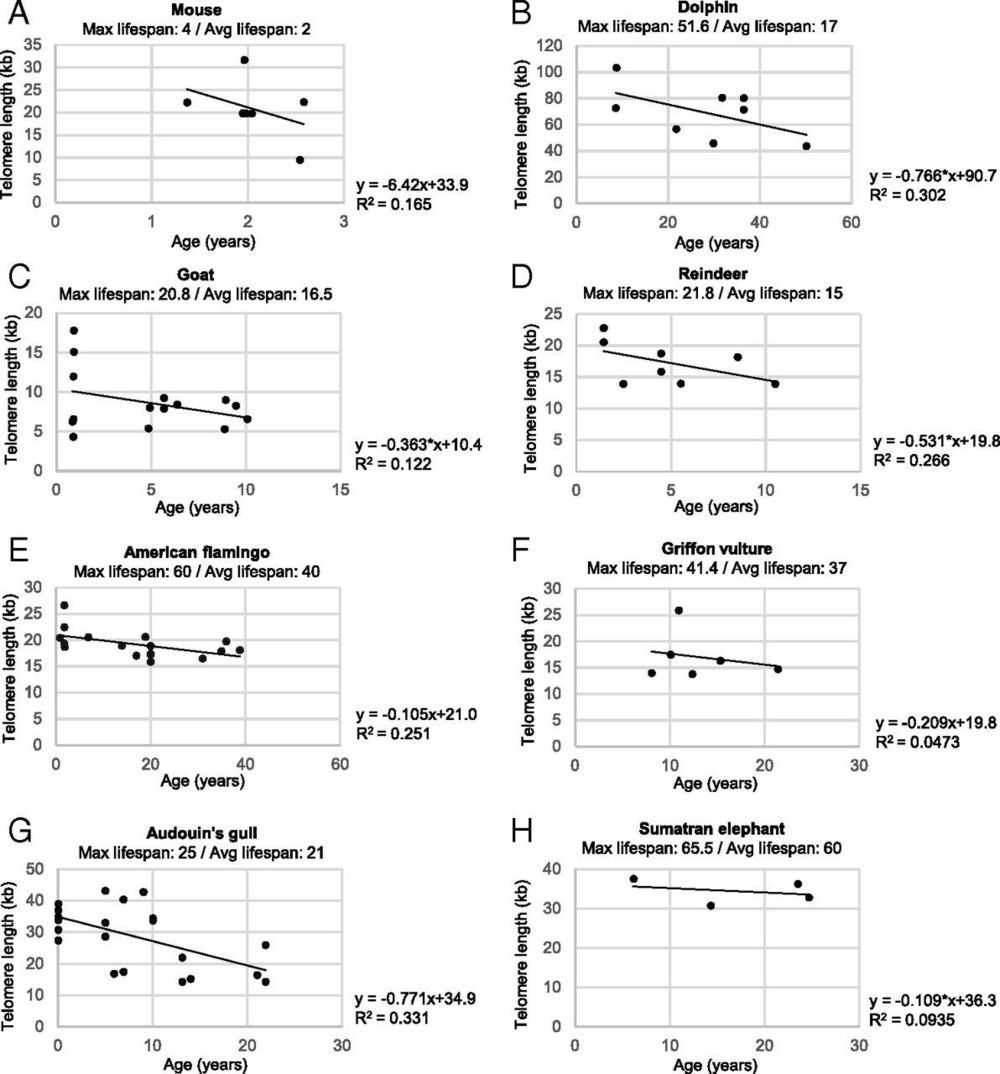The exact causes of aging are still not understood, and it is unclear why some species live less than 1 d, while others can live more than 400 y. Research suggests that telomeres are related to the aging process, but a clear relationship between the life span of a species and initial telomere length has not been observed. Here, we measure the telomere lengths of a variety of different species. We find that, in fact, there is no strong correlation between the life span of a species and initial telomere length. However, we find a strong correlation between the telomere shortening rate and the life span of a species.
Telomere shortening to a critical length can trigger aging and shorter life spans in mice and humans by a mechanism that involves induction of a persistent DNA damage response at chromosome ends and loss of cellular viability. However, whether telomere length is a universal determinant of species longevity is not known. To determine whether telomere shortening can be a single parameter to predict species longevities, here we measured in parallel the telomere length of a wide variety of species (birds and mammals) with very different life spans and body sizes, including mouse (Mus musculus), goat (Capra hircus), Audouin’s gull (Larus audouinii), reindeer (Rangifer tarandus), griffon vulture (Gyps fulvus), bottlenose dolphin (Tursiops truncatus), American flamingo (Phoenicopterus ruber), and Sumatran elephant (Elephas maximus sumatranus). We found that the telomere shortening rate, but not the initial telomere length alone, is a powerful predictor of species life span.
